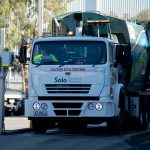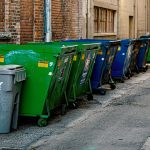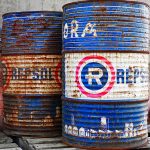Giving Cardboard a Second Life in Adelaide
Cardboard is a material found in most households and businesses, often regarded as disposable after a single use, and in Adelaide, like many parts of Australia, an increase in online shopping and packaging materials has led to an increase in cardboard waste. Now, rather than viewing it as a short-term packaging solution, there’s a growing movement towards giving cardboard a second life, through upcycling, creative reuse, and DIY projects. Cardboard recycling in Adelaide will not only reduce landfill waste but also support a circular economy that benefits both the environment and the community.
The Environmental Value of Cardboard Recycling in Adelaide
Cardboard recycling plays a significant role in reducing the environmental impact of waste. In Adelaide, the Adelaide Waste and Recycling Centre supports the collection and processing of cardboard to be repurposed into new products. Recycling saves energy, reduces emissions, and conserves raw materials, making it a crucial step in sustainable waste management.
However, recycling is not the only option. Before placing cardboard in the recycling bin, consider how it might be reused. While recycling cardboard in a business setting is important, individuals can take the process further by creatively repurposing cardboard themselves. This helps lessen the demand for raw materials and extends the life cycle of cardboard, aligning with the principles of reuse and resource conservation.
Upcycling Cardboard: A Practical and Creative Alternative
Upcycling cardboard offers a simple yet impactful way to reduce waste. It involves transforming used cardboard into new items without disposing of it like traditional recycling. Adelaidians are increasingly adopting this method as part of sustainable living practices.
One popular upcycling idea is turning large cardboard boxes into storage solutions. Boxes can be cut, folded, and reinforced to create organisers, magazine holders, or toy chests. With the addition of fabric, wrapping paper, or paint, these upcycled items become practical and visually appealing, and the growing community of environmentally conscious DIYers continues to find new ways to incorporate upcycling cardboard into their homes and offices.
Creative Reuse in Schools and Community Spaces
Creative reuse of cardboard is not just for adults; it’s also a great opportunity for schools and community centres to engage children in sustainability education. Teachers can incorporate cardboard into lesson plans and craft projects, reinforcing the value of reusing materials while fostering creativity.
Cardboard tubes, sheets, and boxes can be used to build models, create puppets, or design classroom displays. These projects promote hands-on learning and teach students about the importance of reducing waste. In community workshops and environmental programs, cardboard can be repurposed for collaborative art installations or temporary furniture. By involving different age groups in creative reuse activities, communities develop a shared sense of responsibility for their local environment.
DIY Projects to Inspire Adelaide Households
DIY projects are a popular way to engage with sustainable living. Cardboard, due to its availability and versatility, is an ideal material for a range of DIY activities. These projects can be practical or decorative, simple or complex, and there’s something for everyone.
For example, cardboard can be used to make wall art by cutting it into geometric shapes and painting them for a modern look. Parents can help children build cardboard playhouses or castles, which offer hours of entertainment without costing a cent. Pet owners might create scratching posts or beds for their animals. Each of these DIY projects reduces the amount of cardboard going to waste and contributes to a culture of reuse and creativity.
Upcycling cardboard also has social and economic benefits. Participating in DIY projects can bring families and neighbours together, encourage self-reliance, and reduce the need to purchase new items. Local makers markets and community groups frequently showcase innovative cardboard creations, proving that waste materials can be transformed into desirable products.
Supporting a Culture of Sustainability in Adelaide
Encouraging the upcycling of cardboard and creative reuse across households, businesses, and community organisations supports the environment through a commitment to sustainability. Waste management companies like the Adelaide Waste and Recycling Centre play an important role in this by providing recycling services and educating the public about alternatives to disposal.
Workshops, awareness campaigns, and online resources can help more people discover the potential of materials they might otherwise throw away, and promoting cardboard recycling in Adelaide, alongside upcycling and DIY projects allows residents to take ownership of their environmental impact in practical ways. Moreover, local councils and waste service providers can partner with schools, artists, and entrepreneurs to explore innovative uses for cardboard within public spaces.
Ongoing efforts to reduce landfill use and increase recycling rates are greatly enhanced by these grassroots initiatives, and by embracing upcycling and creative reuse, the community strengthens its commitment to a cleaner and more sustainable future.
Giving Cardboard a Second Life
Cardboard is far more than a temporary object. Upcycling cardboard, engaging in creative reuse, and exploring DIY projects have become meaningful ways to extend the life of this basic material. From school classrooms to community centres and private homes, people are finding imaginative uses for cardboard that support waste reduction and environmental awareness.
At the Adelaide Waste and Recycling Centre, we believe in giving materials a second life, and we encourage the residents of Adelaide to explore the many ways that they can reuse and upcycle cardboard. For more tips on sustainable waste practices or to learn about our recycling services, visit our website or contact us today on 08 8295 5077 or via our contact form. Together we can turn waste into a resource and build a more sustainable future.
Adelaide Waste and Recycling Centre
Our friendly operators are available at the AWRC if you need to clarify any further information.


